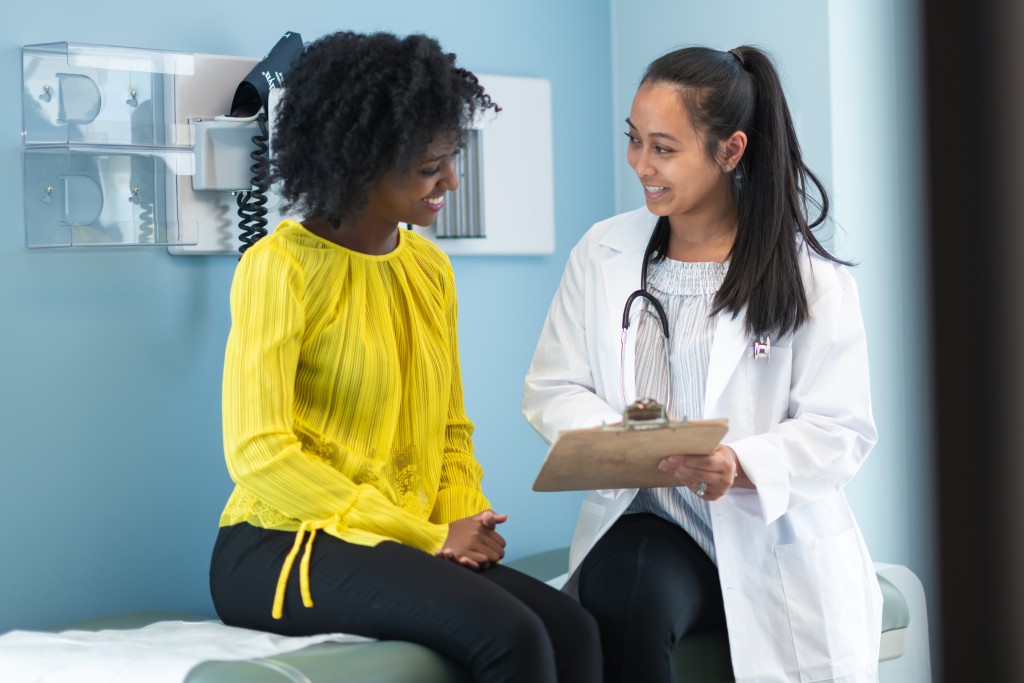Women’s Health
Innovative Trials are passionate about ensuring our diverse population is adequately represented within medical research. Whether it is wanting to see more people from underrepresented communities choosing science as a career and pushing for greater patient diversity in clinical trials or focusing on what we are doing internally to celebrate and promote equality and diversity.
Throughout 2021, we have made a pledge to share our education and experiences with our clients and colleagues, to ensure inclusivity across the board. Each month we will be releasing communications in line with national and international awareness campaigns.
This month we start by taking a look at Women’s Health to increase awareness and education as part of Cervical Health Awareness Month and Thyroid Awareness Month.
Cervical Health Awareness
The main cause of cervical cancer is persistent infection of certain types of the human papillomavirus (HPV). HPV is a common virus, and in most cases, the immune system clears the infection without any problems.
How common is cervical cancer?
- Around 3,200 women are diagnosed with cervical cancer in the UK each year. That’s more than 8 cases diagnosed every day
- Cervical cancer is more common in younger women
- It is estimated that about 12,000 new cases of HPV-associated cervical cancer are diagnosed in the United States each year
- More Black and Hispanic women get HPV-associated cervical cancer than women of other races or ethnicities, possibly because of decreased access to screening tests or follow-up treatment

Research shows that there are barriers to cervical screening amongst ethnic minorities. For example, only 28% of BAME women said they felt comfortable talking to a male GP about cervical screening, compared with 46% of white women.
Only 72% of women currently attend cervical screening appointments. Charity Jo’s Cervical Cancer Trust started #SmearForSmear campaign to try and boost this number.
There has been much research done on lowering the UK screening age from 25, to achieve earlier diagnosis of cervical cancer in younger women. You can read more about the findings here.
Did you know that Trans men can also develop cervical cancer? If they haven’t had an operation to remove their womb and cervix (total hysterectomy, then transgender men are also at risk of developing cervical cancer.
What you can look out for:
Most people with HPV do not know they are infected and never develop symptoms or health problems from it. Some people find out they have HPV when they get genital warts. Women may find out they have HPV when they get an abnormal Pap test result (during cervical cancer screening). Others may only find out once they’ve developed more serious problems from HPV, such as cancers.
Thyroid Awareness
- Women are five to eight times more likely to have thyroid problems than their male counterparts
- One in eight women will develop thyroid problems in her lifetime
What you can look out for:
Under-active thyroid (hypothyroidism) can produce symptoms such as:
- Fatigue
- Weight gain
- Higher sensitivity to the cold
- Hair loss
- Constipation
- Bloating, especially in the face
- Weakness
- Dry skin
- A sore or hoarse throat
- Mood changes
- Brain fog
Hypothyroidism is a condition in which the thyroid gland cannot produce a sufficient volume of thyroid hormone. If you experience multiple symptoms you can get checked by requesting a simple blood test.
Overactive thyroid (hyperthyroidism or thyrotoxicosis) can produce symptoms such as:
- Nervousness, anxiety and irritability
- Mood swings
- Difficulty sleeping
- Persistent tiredness and weakness
- Sensitivity to heat
- Swelling in your neck from an enlarged thyroid gland (goitre)
- An irregular and/or unusually fast heart rate (palpitations)
- Twitching or trembling
- Weight loss
An overactive thyroid, also known as hyperthyroidism or thyrotoxicosis, is where the thyroid gland produces too much of the thyroid hormones. You can get checked by requesting a simple blood test.
Women’s Health
Overall, Innovative Trials are passionate about increasing awareness in women’s health. We have worked to support multiple studies in this area including:
- A Phase 3 Contraceptive Vaginal Gel study which explored the contraceptive efficacy in over 1000 women aged 18 to 35 years. In this study we supported 106 US sites, completing 80 community outreach visits and distributed around 16,000 study brochures within the local community
- An ongoing Phase 3 Women’s Health study, exploring the efficacy of a vaginal gel for the prevention of urogenital Chlamydia trachomatis and Neisseria gonorrhoeae infection. This study looks at female participants aged 18 to 24 years
- A Phase 2b Systemic Lupus Erythematosus (SLE) study, recruiting male and female participants in over 25 countries. We are currently helping this study with patient recruitment and site optimisation services
Systemic Lupus Erythematosus (SLE) statistics:
- Women are at a higher risk than men
- 4 to 12 women diagnosed for every 1 man
- Lupus is 3 times more common in African American women than Caucasian women
- More common in Hispanic, Asian, and Native Americans
Equality, Diversity and Inclusion continue to be high on our agenda, and we are working behind the scenes to push this forward. Keep your eyes peeled for more.
Read our previous blog around disability in the workplace here.
Find out how we’re working with clients to ensure greater patient diversity in clinical trials.
